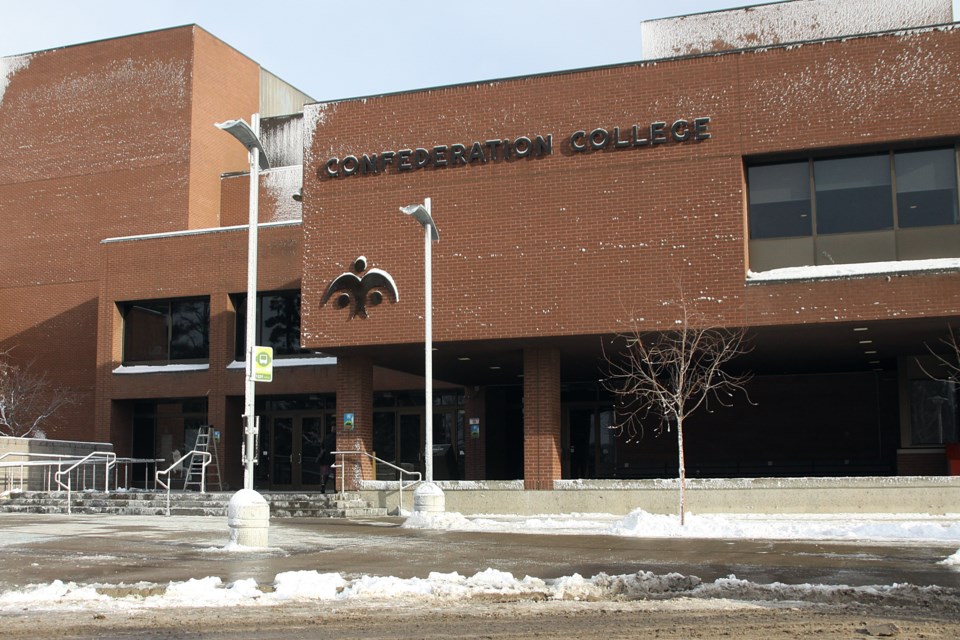THUNDER BAY – The union president representing about 150 academic staff at Confederation College says the provincial arbitrator’s award represents “significant, substantive and historic gains” for college faculty members across Ontario.
The arbitrator tasked with settling the labour dispute involving nearly 12,000 professors, counsellors and librarians at the province’s 24 public colleges that included a five-week strike during the fall issued its decision on Wednesday.
While the new collective agreement includes a 7.75 per cent wage increase over four years as well as a $900 back to work payout, Ontario Public Service Employees Union Local 732 president Rebecca Ward said it was the inclusion of academic freedom language in the decision that rose to the top.
“We see we’ve made significant, substantive and historic gains that will increase both the quality of the education we’re providing and the fairness within the system,” Ward said.
The issue of academic freedom was said to be the primary barrier between the two sides reaching a resolution during the strike, which was forced to an end in November after the provincial government passed back to work legislation.
Ward said entrenching the language in the collective agreement means instructors won’t be bound to teaching by a business model.
“What it allows us to do is make decisions about what happens in our classroom. We can make decisions about the kinds of textbooks we use or the kinds of evaluation tools we use,” Ward said.
“We’re not going to choose multiple choice exams, necessarily, because they’re quicker to mark so that the college system can then spread work across multiple people. We may choose something that’s more substantive in terms of evaluation, like a qualitative kind of essay.”
Ward said she was also satisfied with staffing language and job security for partial load faculty within the system.
Confederation College president Jim Madder said the arbitrator’s decision puts a bookend on the strike and allows everybody to move forward.
“A lot of what is there is positive outcomes for everyone,” Madder said. “The academic freedom actually affirms what we do in our policy, so I’m really happy to see that as well.”
While the ruling formally ends the impasse, Ward said the weeks since classes resumed have been hectic with some instructors having to work as many as 54 hours per week between teaching, preparation work and marking.
“This last month has been chaotic, has been stressful. Faculty have of course managed through this with a ton of integrity because they are committed to students’ success but it has been incredibly stressful,” Ward said.
